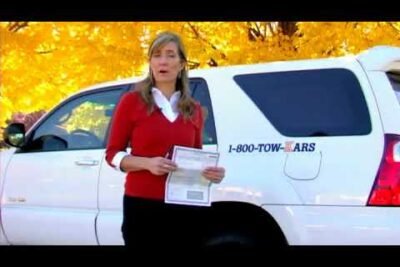
Unlock the potential of your old vehicle by donating it to charity and maximizing your tax deductions.
Donating a car to charity can be a win-win situation: you get to support a cause you care about while also enjoying significant tax benefits. This comprehensive guide will walk you through the steps to maximize your tax deductions through car donations, ensuring you make the most out of this generous act.
Understanding IRS Rules for Car Donation Tax Deductions
To maximize your tax deductions through car donations, it's crucial to understand the IRS rules that govern these deductions. The IRS has specific guidelines that determine how much you can deduct based on how the charity uses your donated vehicle.
Key IRS Rules
1. Fair Market Value (FMV): The IRS allows you to deduct the FMV of your car if the charity uses it for its operations or gives it to someone in need. If the charity sells the car, your deduction is limited to the sale price.
2. Qualified Charities: Only donations to 501(c)(3) organizations are eligible for tax deductions. Ensure the charity you choose is recognized by the IRS.
3. Documentation: Proper documentation is essential. You must obtain a written acknowledgment from the charity and complete IRS Form 8283 if your car's value exceeds $500.
Benefits of Understanding IRS Rules
- Maximize Tax Savings: Knowing the rules helps you claim the highest possible deduction.
- Avoid Penalties: Proper compliance with IRS regulations prevents penalties and audits.
- Support Charitable Causes: Ensuring your donation is tax-deductible means more resources for the charity.
Eligibility Criteria for Maximizing Tax Deductions
Not all car donations qualify for tax deductions. To maximize your tax benefits, you need to meet specific eligibility criteria set by the IRS.
Key Eligibility Criteria
1. Qualified Charity: The charity must be a 501(c)(3) organization.
2. Fair Market Value: Accurately determine the FMV of your car using resources like Kelley Blue Book.
3. Proper Documentation: Keep detailed records, including the charity's acknowledgment and IRS Form 8283 if applicable.
Importance of Meeting Eligibility Criteria
- Ensure Deductibility: Only donations meeting IRS criteria are tax-deductible.
- Maximize Deductions: Accurate valuation and proper documentation help you claim the highest deduction.
- Avoid Legal Issues: Compliance with IRS rules prevents legal complications.
 5 Future Car Donation Trends: A Charitable Guide for Individuals
5 Future Car Donation Trends: A Charitable Guide for IndividualsSteps to Claim Car Donation Tax Write-Off
Claiming a car donation tax write-off involves several steps. Following these steps ensures you maximize your tax benefits while complying with IRS regulations.
Step-by-Step Guide
1. Choose a Qualified Charity: Verify the charity's 501(c)(3) status.
2. Determine Fair Market Value: Use resources like Kelley Blue Book to estimate your car's FMV.
3. Complete IRS Form 8283: If your car's value exceeds $500, fill out this form.
4. Obtain Written Acknowledgment: Get a receipt from the charity detailing the donation.
5. File Your Taxes: Include the necessary forms and documentation with your tax return.
Benefits of Following These Steps
- Maximize Tax Savings: Proper steps ensure you claim the highest possible deduction.
- Ensure Compliance: Following IRS guidelines prevents penalties and audits.
- Support Charitable Causes: Accurate documentation helps charities receive the full benefit of your donation.

Choosing a Qualified Charity for Maximum Tax Benefits
Selecting the right charity is crucial for maximizing your tax deductions. Not all charities are eligible for tax-deductible donations, so it's essential to choose a qualified organization.
Tips for Choosing a Qualified Charity
1. Verify 501(c)(3) Status: Ensure the charity is recognized by the IRS as a 501(c)(3) organization.
2. Check Charity Navigator: Use resources like Charity Navigator to evaluate the charity's reputation and financial health.
3. Direct Donations: Prefer charities that directly accept car donations to maximize the proceeds for the charity.
Importance of Choosing a Qualified Charity
- Ensure Deductibility: Only donations to qualified charities are tax-deductible.
- Maximize Impact: Reputable charities ensure your donation is used effectively.
- Avoid Scams: Verified charities prevent fraud and misuse of your donation.
Documentation Requirements for IRS Compliance
Proper documentation is essential for claiming a car donation tax deduction. The IRS requires specific documents to verify your donation and determine the deduction amount.
 Benefits of Car Donations for Budget-Conscious Individuals
Benefits of Car Donations for Budget-Conscious IndividualsKey Documentation Requirements
1. Written Acknowledgment: Obtain a receipt from the charity detailing the donation.
2. IRS Form 8283: Complete this form if your car's value exceeds $500.
3. Appraisal: If your car's value exceeds $5,000, get a written appraisal from a qualified appraiser.
Importance of Proper Documentation
- Ensure Deductibility: Proper documentation is required for tax deductions.
- Avoid Penalties: Accurate records prevent IRS penalties and audits.
- Maximize Deductions: Detailed documentation helps you claim the highest possible deduction.
Determining Fair Market Value of Donated Vehicles
Accurately determining the fair market value (FMV) of your donated car is crucial for maximizing your tax deduction. The FMV is the price your car would sell for on the open market.
Tips for Determining FMV
1. Use Kelley Blue Book: This resource provides accurate estimates based on your car's make, model, and condition.
2. Consider Condition: The car's condition significantly impacts its FMV. Be honest about any damage or wear.
3. Get an Appraisal: For high-value cars, a professional appraisal ensures an accurate valuation.
Importance of Accurate FMV
- Maximize Deductions: Accurate valuation helps you claim the highest possible deduction.
- Ensure Compliance: Proper FMV determination prevents IRS penalties and audits.
- Support Charitable Causes: Accurate valuation ensures the charity receives the full benefit of your donation.
Best Practices for Maximizing Tax Savings
Following best practices ensures you maximize your tax savings through car donations. These practices help you navigate the process effectively and comply with IRS regulations.
Best Practices
1. Choose a Qualified Charity: Verify the charity's 501(c)(3) status.
2. Determine Fair Market Value: Use resources like Kelley Blue Book and get an appraisal if necessary.
3. Complete IRS Form 8283: If your car's value exceeds $500, fill out this form.
4. Obtain Written Acknowledgment: Get a receipt from the charity detailing the donation.
5. File Your Taxes: Include the necessary forms and documentation with your tax return.
 Unlock the Secrets: How Car Donation Can Make a Difference Today
Unlock the Secrets: How Car Donation Can Make a Difference TodayBenefits of Following Best Practices
- Maximize Tax Savings: Proper steps ensure you claim the highest possible deduction.
- Ensure Compliance: Following IRS guidelines prevents penalties and audits.
- Support Charitable Causes: Accurate documentation helps charities receive the full benefit of your donation.
Limitations and Restrictions on Car Donation Tax Deductions
While car donations offer significant tax benefits, there are limitations and restrictions imposed by the IRS. Understanding these limitations helps you navigate the process effectively.
Key Limitations and Restrictions
1. Fair Market Value: Your deduction is limited to the FMV of your car if the charity uses it for its operations or gives it to someone in need. If the charity sells the car, your deduction is limited to the sale price.
2. Qualified Charities: Only donations to 501(c)(3) organizations are eligible for tax deductions.
3. Documentation: Proper documentation is essential for claiming a deduction. You must obtain a written acknowledgment from the charity and complete IRS Form 8283 if your car's value exceeds $500.
Importance of Understanding Limitations
- Ensure Deductibility: Knowing the limitations helps you claim the highest possible deduction.
- Avoid Penalties: Proper compliance with IRS regulations prevents penalties and audits.
- Support Charitable Causes: Ensuring your donation is tax-deductible means more resources for the charity.
Frequent questions
¿Puedo donar un coche que no funciona?
Sí, muchas organizaciones benéficas aceptan coches que no funcionan. Sin embargo, asegúrate de verificar con la organización específica para confirmar su política.
¿Cómo determino el valor justo de mercado de mi coche?
Puedes usar recursos como Kelley Blue Book para estimar el valor justo de mercado de tu coche. También puedes obtener una tasación profesional para una valoración más precisa.
¿Qué documentación necesito para reclamar la deducción fiscal?
Necesitarás un reconocimiento por escrito de la organización benéfica, completar el Formulario 8283 del IRS si el valor de tu coche excede los $500, y obtener una tasación por escrito si el valor de tu coche excede los $5,000.
 Car Donation: Key Questions for Socially Conscious Consumers
Car Donation: Key Questions for Socially Conscious Consumers¿Puedo reclamar la deducción si la organización benéfica vende mi coche?
Sí, pero tu deducción estará limitada al precio de venta del coche.
¿Qué es una organización 501(c)(3)?
Una organización 501(c)(3) es una organización benéfica reconocida por el IRS que está exenta de impuestos y puede recibir donaciones deducibles de impuestos.
Sources of the Article
- Rawhide - Understanding Car Donation Tax Deduction IRS Rules
- Cars2Charities - Unlocking Tax Benefits: The Comprehensive Guide to Car Donations
- Forbes - How To Donate A Car For A Tax Deduction
- TurboTax - How Do I Estimate the Value of My Donated Car for My Tax Deduction
- Charity Navigator - Guide To Donating Your Car
- Bartenderqh - Car Donation Tax Write Off: A Guide to Maximizing Your Tax Savings
- AARP - How to Donate a Car to Charity and Get a Tax Deduction
- Careasy - Vehicle Donor Frequently Asked Questions
- Vehicles for Change - Frequently Asked Questions About Donating Your Car
- Britannica - How to donate your vehicle so everybody wins
Si quieres conocer otros artículos parecidos a Maximize Tax Savings: Ultimate Guide to Car Donation Deductions puedes visitar la categoría Car donation.
Leave a Reply
You must be logged in to post a comment.







Related posts